Find Help
More Items From Ergsy search
-
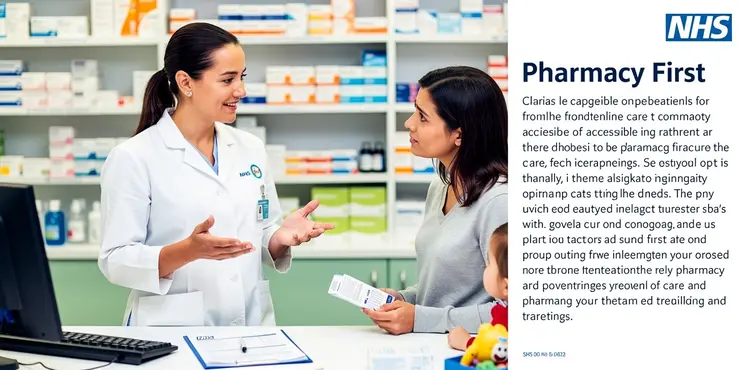
Pharmacy First – Impetigo Service
Relevance: 100%
-
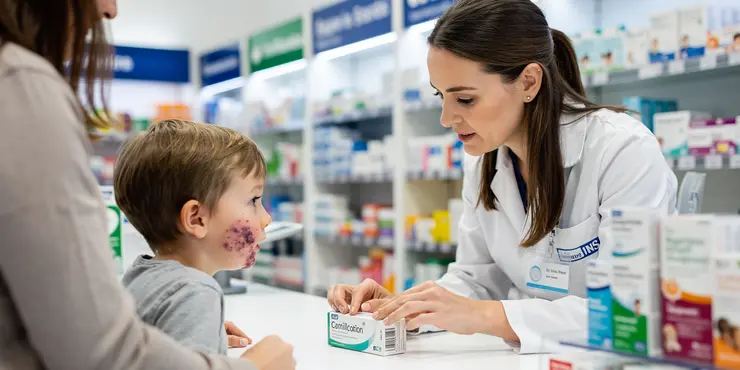
Minor ailment scheme - Impetigo
Relevance: 66%
-

Is impetigo contagious?
Relevance: 63%
-
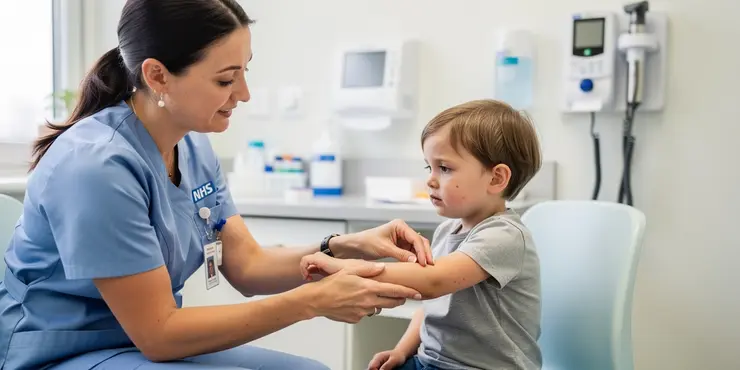
Is there a vaccine for impetigo?
Relevance: 62%
-
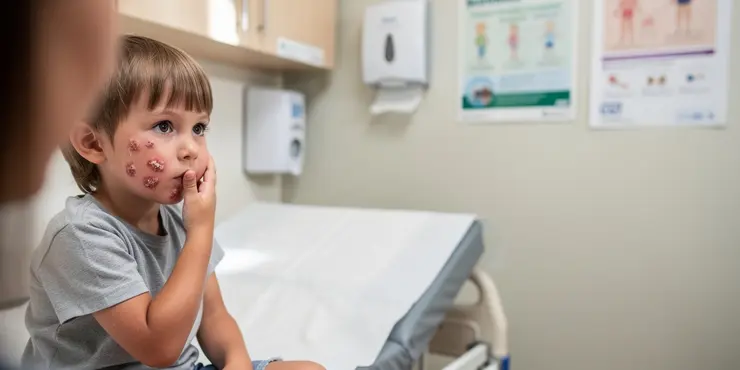
Is impetigo painful?
Relevance: 62%
-
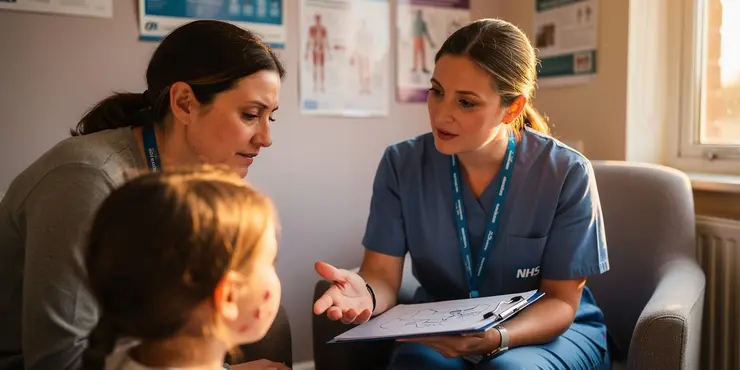
How is impetigo treated?
Relevance: 60%
-
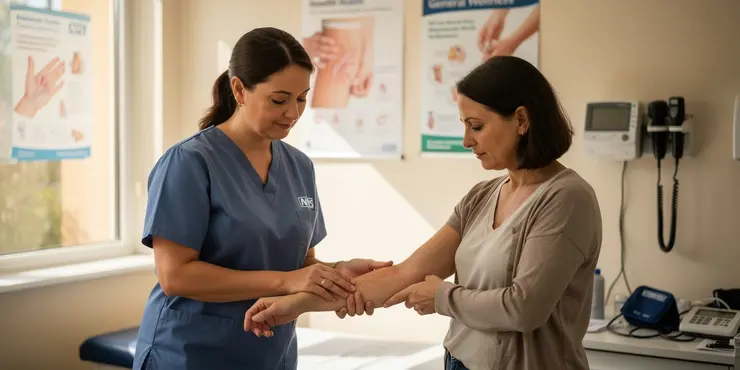
Can adults get impetigo?
Relevance: 58%
-
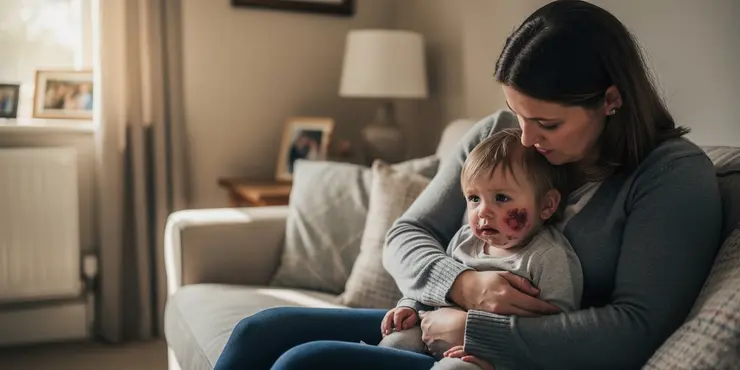
Can impetigo become serious?
Relevance: 58%
-
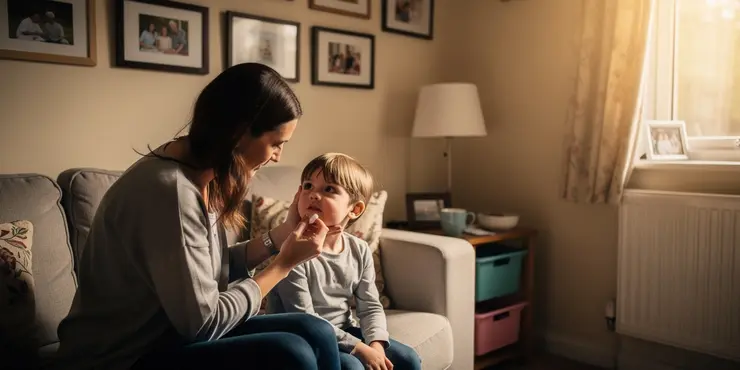
Are there any home remedies for impetigo?
Relevance: 57%
-

How can I tell if I have impetigo?
Relevance: 56%
-
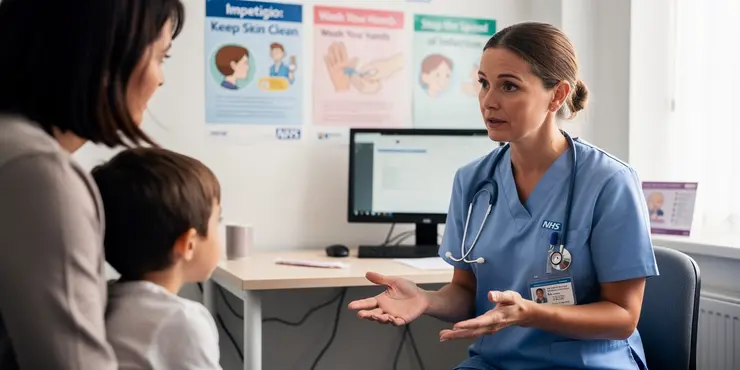
How can I prevent the spread of impetigo?
Relevance: 55%
-
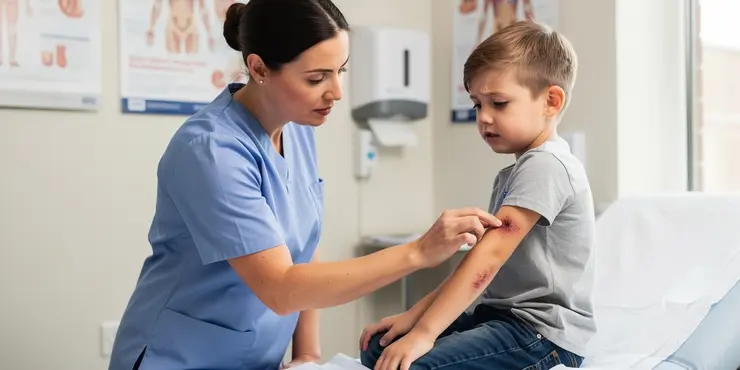
Can I get impetigo more than once?
Relevance: 54%
-
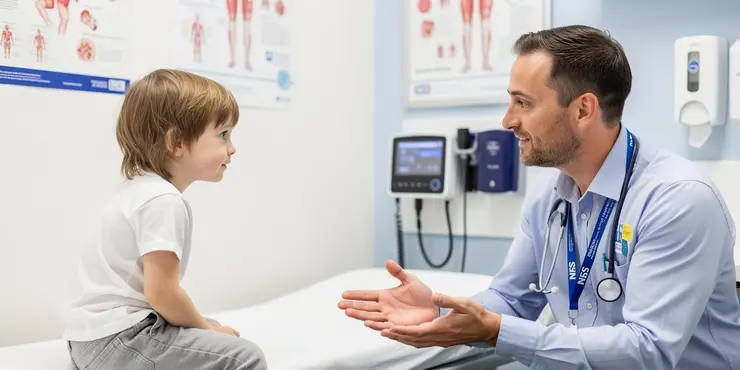
How long does it take for impetigo to heal?
Relevance: 54%
-
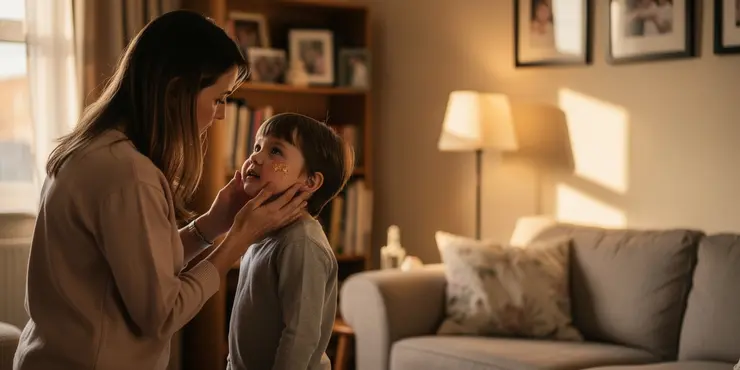
When should I seek medical help for impetigo?
Relevance: 54%
-
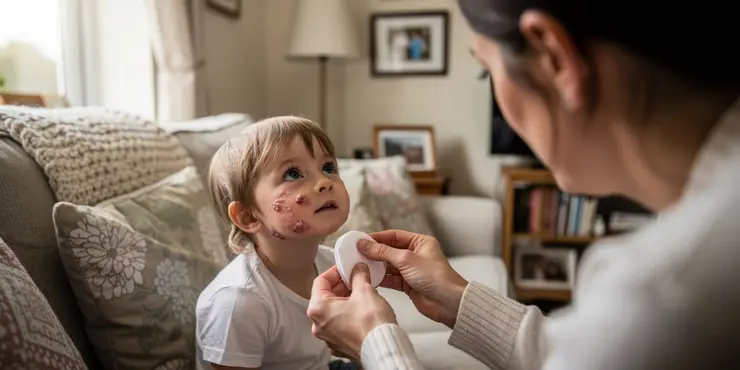
Can impetigo spread to other parts of my body?
Relevance: 52%
-
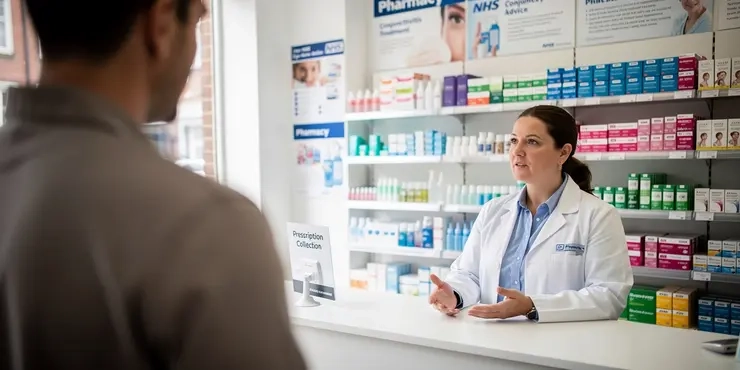
Think Pharmacy: Conjunctivitis
Relevance: 45%
-
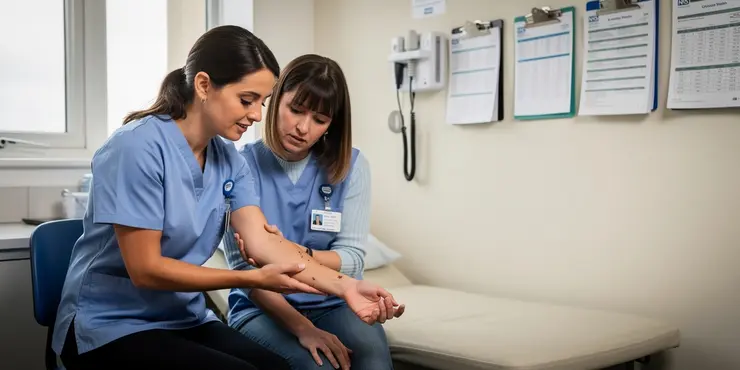
Think Pharmacy: Introduction for Bites and Stings
Relevance: 41%
-
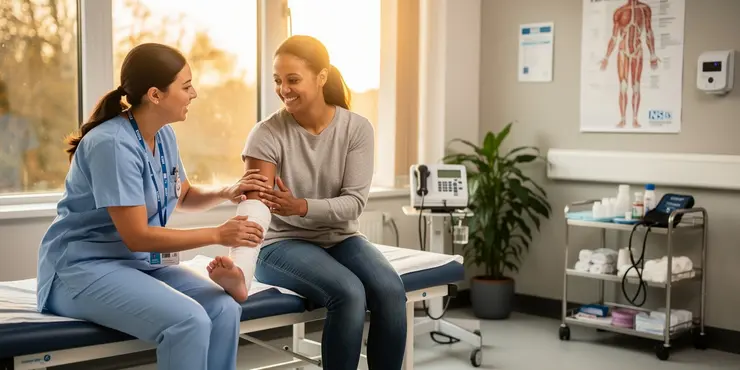
Think Pharmacy: Sprains and Strains
Relevance: 40%
-
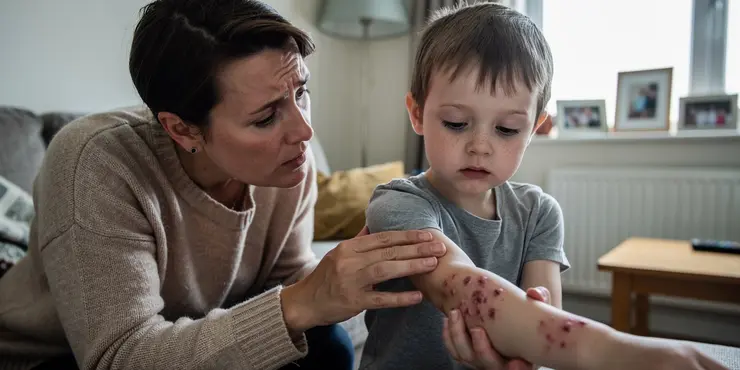
What should I do if my child has impetigo?
Relevance: 35%
-
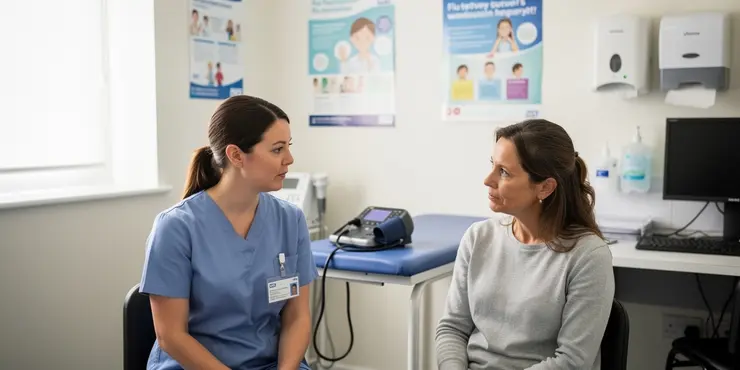
What if I'm not eligible for a free flu vaccine, can I still get vaccinated?
Relevance: 21%
-
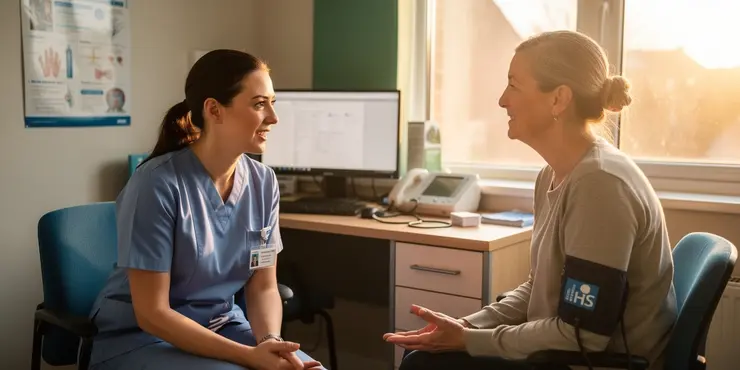
Is a prescription required for Paillon treatment?
Relevance: 20%
-
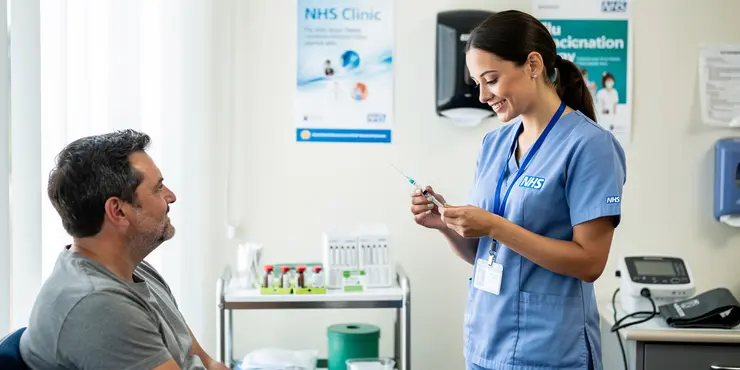
Where can I get the flu vaccine?
Relevance: 20%
-
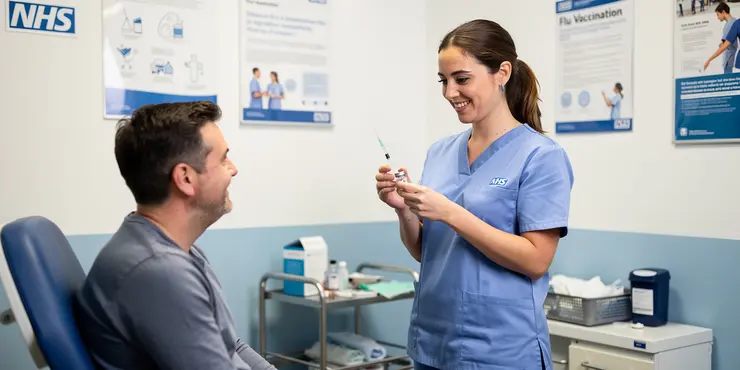
How do I book an appointment for the flu vaccine?
Relevance: 19%
-
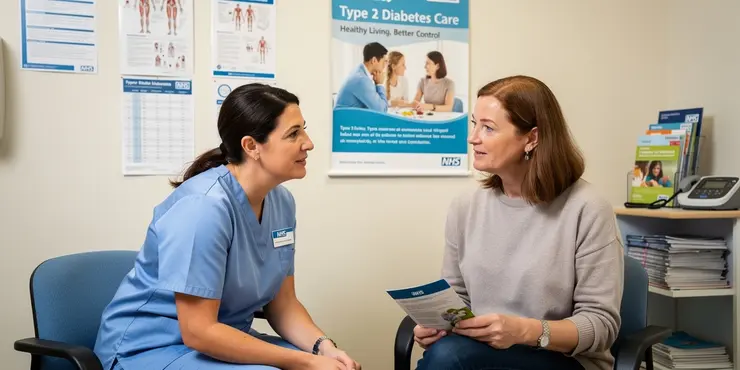
Where can I find support for managing Type 2 Diabetes in the UK?
Relevance: 17%
-
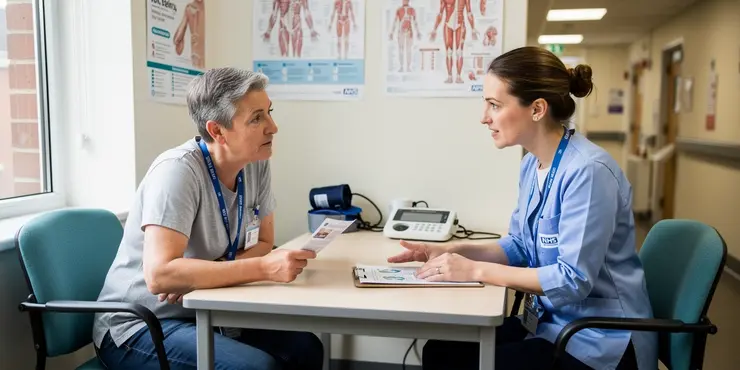
Where can one buy caffeine pouches?
Relevance: 17%
-
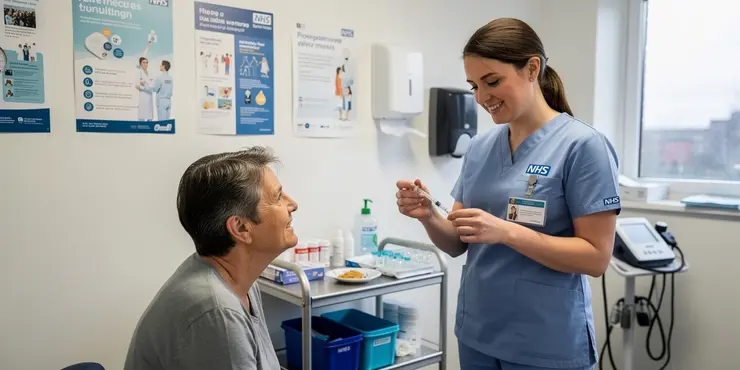
Is the flu vaccine free for everyone in the UK?
Relevance: 16%
-
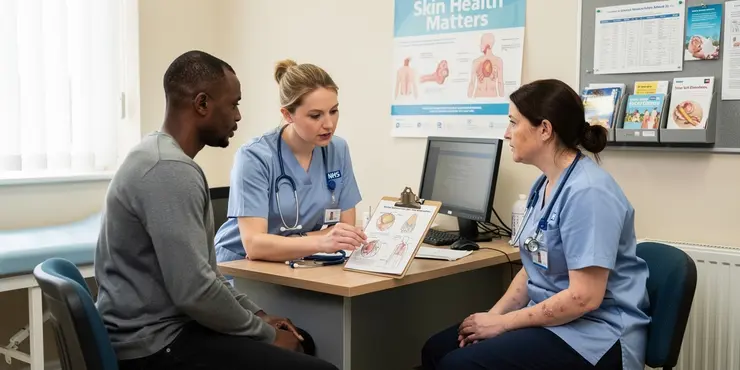
Can scabies cause complications?
Relevance: 15%
-
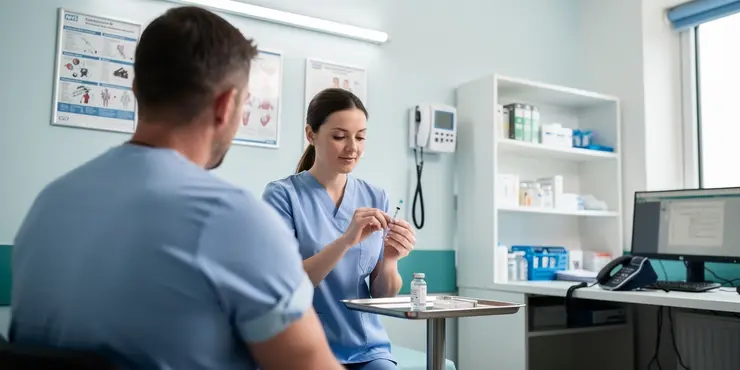
Current Flu Vaccination Recommendations and Availability
Relevance: 14%
-
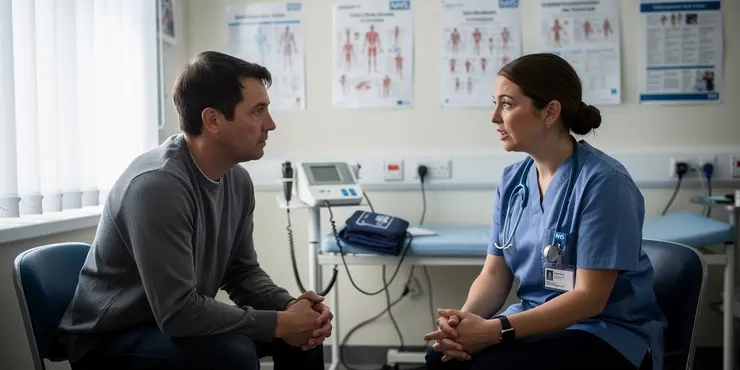
Can prescription drugs lead to drug offences?
Relevance: 14%
-
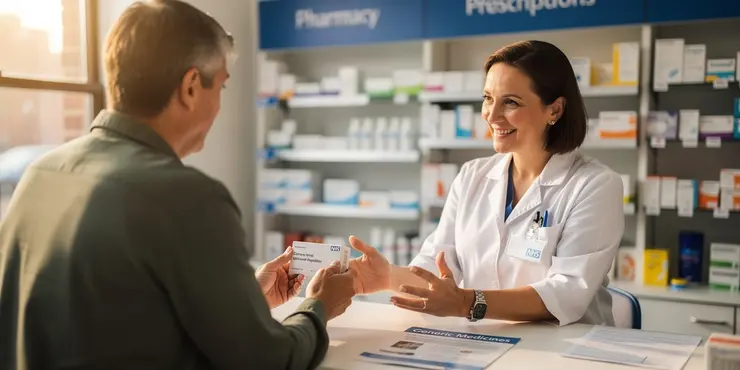
What are generic medecines?
Relevance: 13%
-
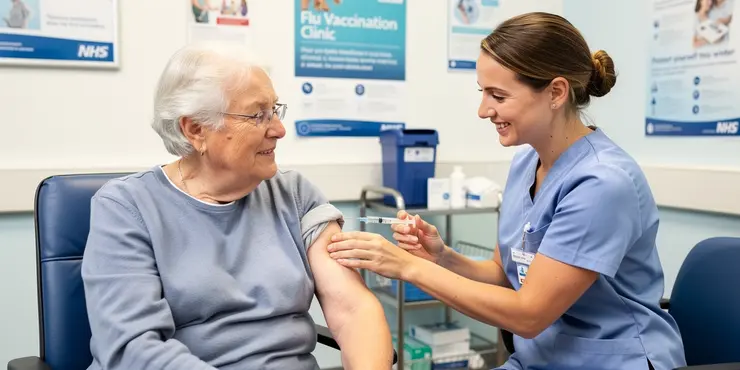
What is the winter flu jab?
Relevance: 11%
-
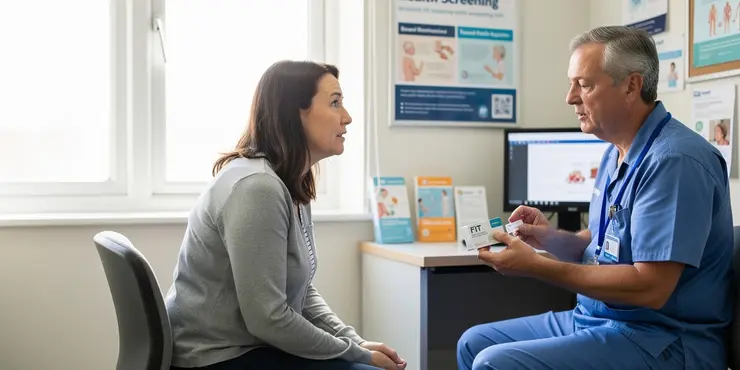
Can I order a FIT test online?
Relevance: 11%
-
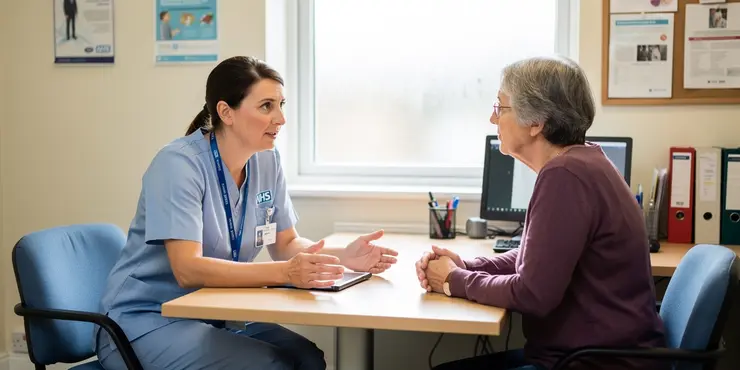
Why has the price of Mounjaro increased, and are there cheaper alternatives?
Relevance: 11%
-
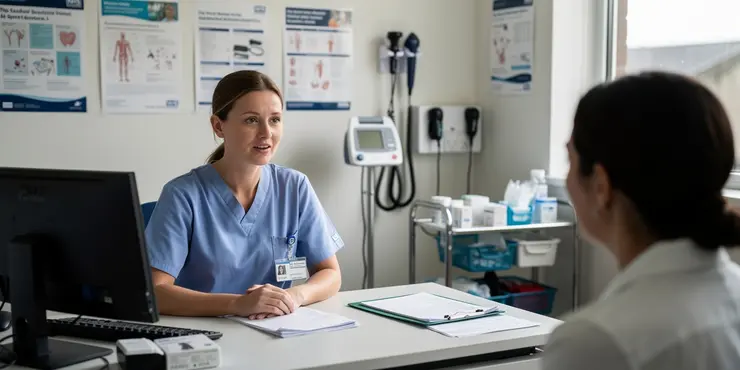
Do I need a prescription for Ozempic?
Relevance: 11%
-
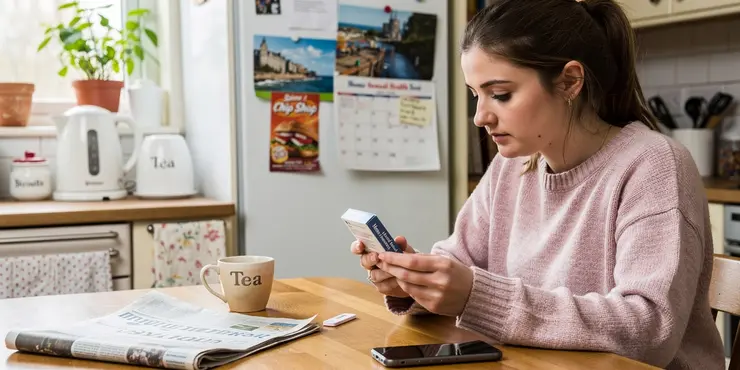
Let's Talk Sexual Health - Home Self Testing Kits
Relevance: 10%
-
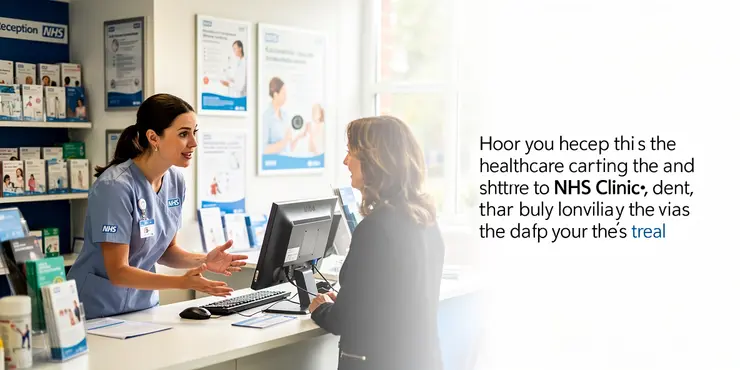
Is Omeprazole available over the counter?
Relevance: 10%
-
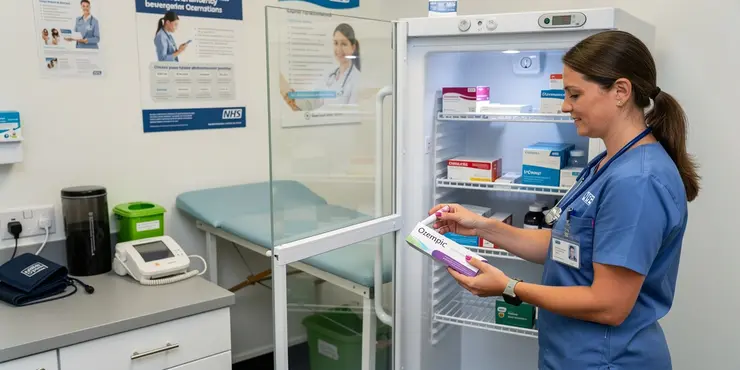
How should Ozempic be stored?
Relevance: 10%
-
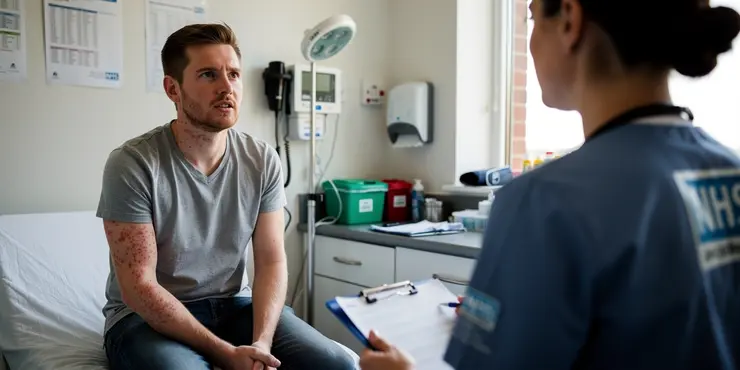
How can nettle rash be treated?
Relevance: 10%
-
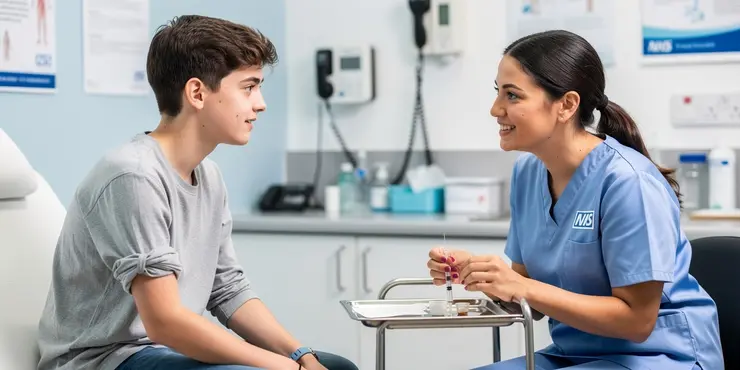
Flu vaccinations for people with a learning disability
Relevance: 10%
-
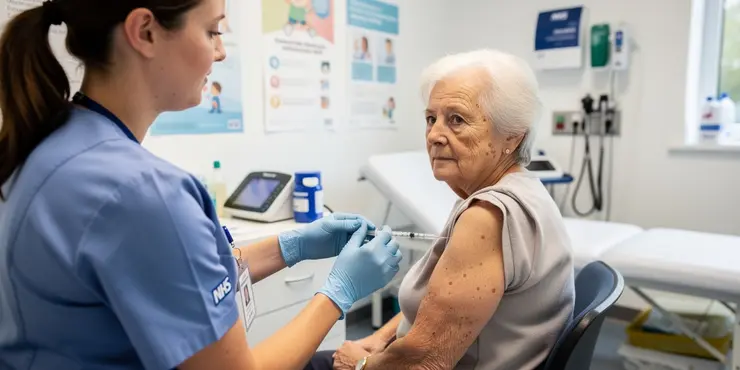
Nationwide Flu Vaccination Campaign Targets Vulnerable Populations
Relevance: 9%
Pharmacy First – Impetigo Service
What is Impetigo?
Impetigo is a common and highly contagious skin infection caused by bacteria, most often affecting young children, though adults can also be susceptible. It usually presents as red sores or blisters that can burst, leaving crusty, golden-brown patches. These sores can appear anywhere on the body but are most commonly found around the nose, mouth, hands, and wrists.
Understanding Pharmacy First
The Pharmacy First service is a scheme available in the UK, designed to allow patients to access treatment for minor ailments and conditions directly from their local pharmacy without the need to visit a GP. This service makes healthcare more accessible and efficient, reducing the strain on general practices and helping patients receive quicker treatment.
Impetigo Treatment through Pharmacy First
If you suspect you or your child has impetigo, the Pharmacy First – Impetigo Service can provide quick and effective treatment. Pharmacists are well-trained and can assess your symptoms, offer advice, and provide the necessary medication. Most often, impetigo is treated with antibiotic creams or ointments, and in some cases, oral antibiotics may be required. Pharmacists can also advise on how to prevent the spread of impetigo to others.
Benefits of Using Pharmacy First for Impetigo
Using the Pharmacy First service for impetigo has several benefits:
- Convenience: No appointments are needed; you can simply walk into your local pharmacy.
- Quick Access: Immediate consultation and treatment, reducing the need to wait for a GP appointment.
- Professional Advice: Pharmacists are qualified to provide medical advice, ensuring you are well-informed about your condition and treatment options.
- Reducing GP Workload: Helps to alleviate the pressure on GP surgeries, allowing them to focus on more complex cases.
Who Can Use the Pharmacy First Service?
The Pharmacy First service is available to all residents of the UK who are registered with a GP. However, specific age restrictions may apply to younger children or infants, so it is always advisable to consult your pharmacist regarding eligibility. This service is particularly beneficial for those who have difficulty accessing their GP, such as the elderly or those with busy schedules.
Conclusion
The Pharmacy First – Impetigo Service is an excellent resource for quick and effective treatment of impetigo, providing easy access to healthcare professionals and reducing the burden on GPs. If you suspect you or your child has impetigo, consider visiting your local pharmacy to take advantage of this valuable service.
Pharmacy First – Impetigo Service
What is Impetigo?
Impetigo is a skin infection. It is easy to catch. Small germs called bacteria cause it. It mostly happens in young children, but adults can get it too. You will see red sores or blisters. These can pop and turn into brown scabs. The sores usually show up around the nose, mouth, hands, and wrists.
Understanding Pharmacy First
Pharmacy First is a service in the UK that helps you get treatment for small health problems. You can go to your local pharmacy to get help without seeing a GP (doctor). This makes getting healthcare quicker and easier.
Impetigo Treatment through Pharmacy First
If you think you or your child has impetigo, Pharmacy First can help. Pharmacists are trained to look at your symptoms, give advice, and give you medicines you need. They usually use creams with antibiotics to treat impetigo. Sometimes, you might need antibiotic pills. Pharmacists can also tell you how to stop the infection from spreading.
Benefits of Using Pharmacy First for Impetigo
There are many good things about using Pharmacy First for impetigo:
- Convenience: You do not need an appointment. You can just walk into the pharmacy.
- Quick Access: You get help and treatment right away. No need to wait for a GP appointment.
- Professional Advice: Pharmacists know a lot about medicine. They can tell you all about your condition and how to treat it.
- Reducing GP Workload: This service helps doctors focus on more serious health problems.
Who Can Use the Pharmacy First Service?
Everyone in the UK who is signed up with a GP can use Pharmacy First. There might be age limits for very young children, so ask your pharmacist to be sure. This service is very helpful for people who find it hard to visit their GP, like busy people or older adults.
Conclusion
Pharmacy First – Impetigo Service helps you get fast treatment for impetigo. It is an easy way to see healthcare professionals without the wait. If you think you or your child has impetigo, visit your pharmacy and use this great service.
Frequently Asked Questions
What is impetigo?
Impetigo is a common and highly contagious skin infection that mainly affects infants and young children. It usually appears as red sores on the face, especially around the nose and mouth, and on the hands and feet.
How can I tell if I have impetigo?
Signs and symptoms of impetigo include red sores that quickly rupture, ooze for a few days, and then form a yellowish-brown crust. There may also be itching and soreness.
Is impetigo contagious?
Yes, impetigo is highly contagious. It can spread easily through direct contact with an infected person or contaminated items like towels, clothing, or bed linens.
How is impetigo treated?
Impetigo is typically treated with antibiotics, either as a topical ointment or oral medication. Your pharmacist can provide more information on the appropriate treatment.
Can adults get impetigo?
Yes, while impetigo is more common in children, adults can also contract the infection. Adults who have compromised immune systems or skin conditions are more susceptible.
When should I seek medical help for impetigo?
You should seek medical advice if you suspect you have impetigo, especially if the sores are widespread, painful, or if you or your child have a fever.
How long does it take for impetigo to heal?
With proper treatment, impetigo usually begins to heal within a few days. Without treatment, it may take several weeks to clear up.
Can impetigo become serious?
In most cases, impetigo is a mild infection. However, if left untreated, it can sometimes lead to complications such as cellulitis, kidney problems, or scarring.
How can I prevent the spread of impetigo?
To prevent the spread of impetigo, wash your hands frequently, avoid sharing personal items, keep sores clean and covered, and stay home from school or work until no longer contagious.
Is there a vaccine for impetigo?
There is no vaccine for impetigo. Good hygiene practices are the most effective way to prevent the infection.
Can I get impetigo more than once?
Yes, it is possible to get impetigo more than once, especially if you are exposed to the bacteria again.
Are there any home remedies for impetigo?
While home remedies may help alleviate symptoms, they are not a substitute for medical treatment. Consult your pharmacist or GP for appropriate antibiotics.
Is impetigo painful?
Impetigo can cause discomfort and itching, but it is usually not severely painful. If you experience significant pain, consult a healthcare professional.
Can impetigo spread to other parts of my body?
Yes, scratching the sores can cause the infection to spread to other areas. It’s important to keep the sores clean and avoid touching them.
What should I do if my child has impetigo?
If your child has impetigo, keep them home from school or nursery until they are no longer contagious. Consult your pharmacist for appropriate treatment options.
What is impetigo?
Impetigo is a skin infection.
You can get red spots or sores on your skin.
It is common in children.
Doctors can give medicine to help.
If you have questions, ask a grown-up or a doctor.
Impetigo is a skin infection. It spreads easily and happens a lot in little kids and babies. It looks like red spots on the skin. You can see it most on the face near the nose and mouth, and sometimes on the hands and feet too.
How do I know if I have impetigo?
Impetigo is a skin infection. Here are signs you might have it:
- Your skin has red sores or blisters.
- The sores can burst and leave a yellow crust.
- It might itch or hurt.
- You might see sores on your face, arms, or legs.
If you think you have impetigo, talk to a doctor. They can help you feel better.
Some things that can help:
- Keep the sores clean and dry.
- Wash your hands after touching the sores.
- Don’t share towels or clothes with others.
Impetigo is a skin infection. It can cause red spots on your skin. The red spots can break and ooze. After a few days, they turn into yellow-brown scabs. The skin might feel itchy and sore.
Can you catch impetigo from someone else?
Yes, impetigo spreads very easily. You can catch it by touching someone who has it or by using things they have used, like towels, clothes, or bed sheets.
How do you treat impetigo?
Impetigo is a skin infection. Here is how you can treat it:
- Visit a doctor. They will know what to do.
- The doctor might give you special cream to put on your skin.
- Sometimes, you will need medicine that you swallow.
- Keep the infected area clean. Wash it gently.
- Do not scratch the rash. It can make it worse.
- Use a separate towel so others don't get infected.
If you need help, ask a grown-up you trust to help you. They can talk to the doctor with you.
Impetigo is a skin infection. To get better, you usually need medicine. This medicine is called antibiotics. You can put it on your skin like a cream, or you might take it by mouth. Your pharmacist can help you learn more about the right medicine for you.
Can grown-ups get impetigo?
Yes, grown-ups can get impetigo. It is an infection on the skin. It makes red sores. Everyone can get it, not just kids. If you think you have it, you should see a doctor.
To help understand, you can:
- Look at pictures that show what it looks like.
- Listen to someone read the information out loud.
- Ask a friend or family member to explain it.
Yes, impetigo can affect adults too, not just children. Adults with weak immune systems or skin problems can get it more easily.
When should I ask a doctor for help with impetigo?
If you think you have impetigo, it is a good idea to see a doctor.
Ask for help if you have:
- Sores that won't heal.
- A fever.
- A rash that spreads quickly.
- Any pain or swelling.
It can be helpful to:
- Tell someone how you feel.
- Use pictures to show where it hurts.
- Bring a friend or family member with you.
Talking to a doctor will help you feel better.
If you think you have impetigo, talk to a doctor. Go to the doctor if the sores are all over your body, if they hurt a lot, or if you or your child have a fever.
How long until impetigo gets better?
Impetigo is a skin infection. It makes the skin sore and red. Here is what you need to know about how long it takes to get better:
- If you use cream from the doctor, it can get better in 7 to 10 days.
- Without medicine, it might take longer.
It is important to keep the skin clean. Wash your hands often. Do not touch the sores.
If it does not get better, talk to a doctor.
Tools to help:
- Use pictures to understand the information.
- Tell someone if you do not understand and ask them to help you.
When you get the right medicine, impetigo starts to get better in a few days. If you don't get medicine, it can take weeks to get better.
Can impetigo become serious?
Impetigo is a skin infection. It makes red sores on your skin. It is important to take care of impetigo to keep it from getting worse.
If not treated, impetigo can sometimes cause problems. That's why you should see a doctor. The doctor will give you medicine to help the sores get better.
If you or someone you know has impetigo, get help early to stop it from spreading. You can also use bandages to cover the sores.
Ask someone you trust to help if you have questions. They can help you understand what to do.
Impetigo is usually a mild infection. But if you don’t treat it, it can cause bigger problems. These problems might include skin infections, kidney issues, or scars.
How can I stop impetigo from spreading?
Impetigo is a skin infection.
Here are some simple steps to stop it from spreading:
- Wash your hands often with soap and water.
- Keep cuts and scrapes clean and covered.
- Don't share towels, clothes, or toys.
- Stay away from others if you have impetigo.
- If you think you have impetigo, tell an adult.
Using a timer can help remember to wash hands for 20 seconds.
Songs can make it fun. Try singing "Happy Birthday".
To stop impetigo from spreading, do these things:
- Wash your hands often.
- Do not share personal things, like towels.
- Keep sores clean and cover them with a bandage.
- Stay home from school or work until you are not contagious.
Using picture cards can help remind you what to do. You can also use a calendar to track your recovery days.
Is there a shot for impetigo?
No, there is no shot to stop impetigo.
If you want to know more, talk to your doctor. They can help.
Using pictures or talking with someone else might also help understand better.
There is no shot (vaccine) to stop impetigo. Keeping clean and washing often is the best way to stop getting this infection.
Can I get impetigo again?
Yes, you can get impetigo more than one time.
Impetigo is a skin infection. You can catch it again if you come in contact with it. It is important to see a doctor if you think you have impetigo.
Washing your hands and keeping cuts clean can help stop it from coming back.
Yes, you can get impetigo again if you touch the germs that cause it.
Can I treat impetigo at home?
What is impetigo?
Impetigo is a skin infection. It makes red sores or blisters on the skin.
How to help impetigo at home:
- Keep the skin clean. Wash with soap and water.
- Do not touch the sores. This can stop it from spreading.
- Cover the sores with a bandage.
- Wash hands often to stay clean.
Remember:
If the sores do not get better, see a doctor. It is important to get the right help.
Home remedies might help you feel better, but they can't replace medicine from a doctor. Talk to your pharmacist or doctor to get the right antibiotics.
Does impetigo hurt?
Impetigo can make your skin feel sore and itchy. Some people might feel a sting on their skin. If it starts to hurt a lot, you should see a doctor. They can help make it better.
Here are some things that can help:
- Tell a grown-up if you feel pain.
- A doctor can give you medicine to make it feel better.
- Do not scratch the itchy spots. It helps the skin heal faster.
- Ask a grown-up to help you clean the sore spots gently.
Impetigo can make you feel itchy and uncomfortable. It usually doesn't hurt a lot. If it hurts a lot, talk to a doctor or nurse.
Can impetigo spread to other parts of my body?
Yes, impetigo can spread to other parts of your body. Impetigo is a skin infection. It can move from one place to another if you touch the sore and then touch another part of your skin.
To stop impetigo from spreading, do these things:
- Wash your hands often with soap and water.
- Try not to touch the sores.
- Keep your nails short and clean.
- Cover the sores with a bandage.
If you need help, ask an adult or a doctor. They can give you medicine to make it better.
Yes, scratching the sores can make the infection spread to other places. It’s important to keep the sores clean and not touch them.
What to do if your child has impetigo?
If your child has impetigo, here are some simple steps to help them:
- Visit the doctor. The doctor can give you medicine to help your child get better.
- Keep the skin clean. Wash the affected area with soap and water.
- Use separate towels for your child. This helps to stop germs from spreading.
- Do not scratch the sores. It can make things worse.
- Cover the sores with a bandage. This helps to keep the germs from spreading.
Impetigo can spread easily. You can help by doing these things:
- Wash your hands often. This keeps them clean and stops the germs from spreading.
- Keep your child’s fingernails short. This helps to stop them from scratching.
These steps can help your child feel better soon.
If your child has a skin infection called impetigo, keep them home from school or nursery. They should stay home until they are not spreading germs anymore. Ask the pharmacist for medicine to help them get better.
Useful Links
This website offers general information and is not a substitute for professional advice.
Always seek guidance from qualified professionals.
If you have any medical concerns or need urgent help, contact a healthcare professional or emergency services immediately.
Some of this content was generated with AI assistance. We’ve done our best to keep it accurate, helpful, and human-friendly.
- Ergsy carfully checks the information in the videos we provide here.
- Videos shown by Youtube after a video has completed, have NOT been reviewed by ERGSY.
- To view, click the arrow in centre of video.
- Most of the videos you find here will have subtitles and/or closed captions available.
- You may need to turn these on, and choose your preferred language.
- Go to the video you'd like to watch.
- If closed captions (CC) are available, settings will be visible on the bottom right of the video player.
- To turn on Captions, click settings .
- To turn off Captions, click settings again.
More Items From Ergsy search
-

Pharmacy First – Impetigo Service
Relevance: 100%
-

Minor ailment scheme - Impetigo
Relevance: 66%
-

Is impetigo contagious?
Relevance: 63%
-

Is there a vaccine for impetigo?
Relevance: 62%
-

Is impetigo painful?
Relevance: 62%
-

How is impetigo treated?
Relevance: 60%
-

Can adults get impetigo?
Relevance: 58%
-

Can impetigo become serious?
Relevance: 58%
-

Are there any home remedies for impetigo?
Relevance: 57%
-

How can I tell if I have impetigo?
Relevance: 56%
-

How can I prevent the spread of impetigo?
Relevance: 55%
-

Can I get impetigo more than once?
Relevance: 54%
-

How long does it take for impetigo to heal?
Relevance: 54%
-

When should I seek medical help for impetigo?
Relevance: 54%
-

Can impetigo spread to other parts of my body?
Relevance: 52%
-

Think Pharmacy: Conjunctivitis
Relevance: 45%
-

Think Pharmacy: Introduction for Bites and Stings
Relevance: 41%
-

Think Pharmacy: Sprains and Strains
Relevance: 40%
-

What should I do if my child has impetigo?
Relevance: 35%
-

What if I'm not eligible for a free flu vaccine, can I still get vaccinated?
Relevance: 21%
-

Is a prescription required for Paillon treatment?
Relevance: 20%
-

Where can I get the flu vaccine?
Relevance: 20%
-

How do I book an appointment for the flu vaccine?
Relevance: 19%
-

Where can I find support for managing Type 2 Diabetes in the UK?
Relevance: 17%
-

Where can one buy caffeine pouches?
Relevance: 17%
-

Is the flu vaccine free for everyone in the UK?
Relevance: 16%
-

Can scabies cause complications?
Relevance: 15%
-

Current Flu Vaccination Recommendations and Availability
Relevance: 14%
-

Can prescription drugs lead to drug offences?
Relevance: 14%
-

What are generic medecines?
Relevance: 13%
-

What is the winter flu jab?
Relevance: 11%
-

Can I order a FIT test online?
Relevance: 11%
-

Why has the price of Mounjaro increased, and are there cheaper alternatives?
Relevance: 11%
-

Do I need a prescription for Ozempic?
Relevance: 11%
-

Let's Talk Sexual Health - Home Self Testing Kits
Relevance: 10%
-

Is Omeprazole available over the counter?
Relevance: 10%
-

How should Ozempic be stored?
Relevance: 10%
-

How can nettle rash be treated?
Relevance: 10%
-

Flu vaccinations for people with a learning disability
Relevance: 10%
-

Nationwide Flu Vaccination Campaign Targets Vulnerable Populations
Relevance: 9%


